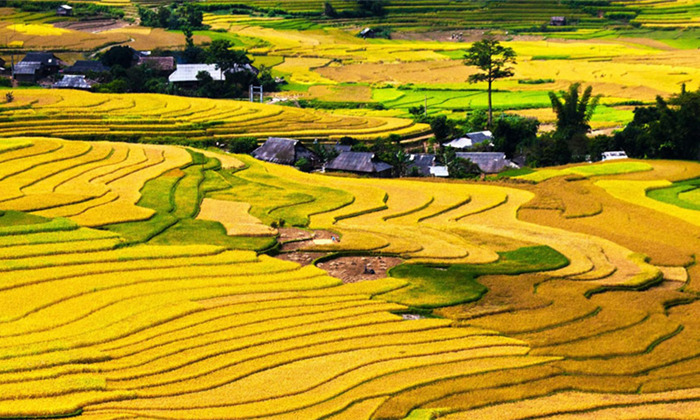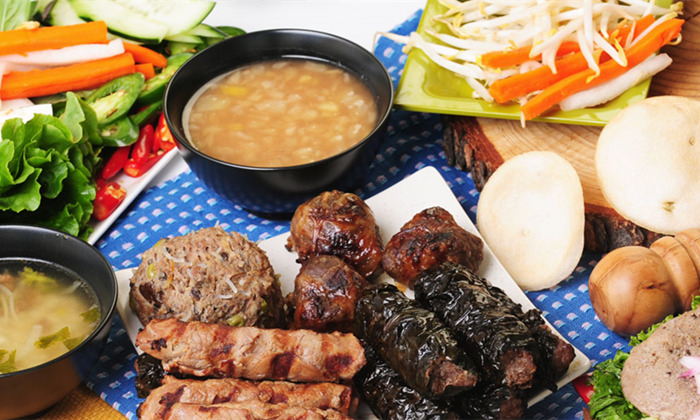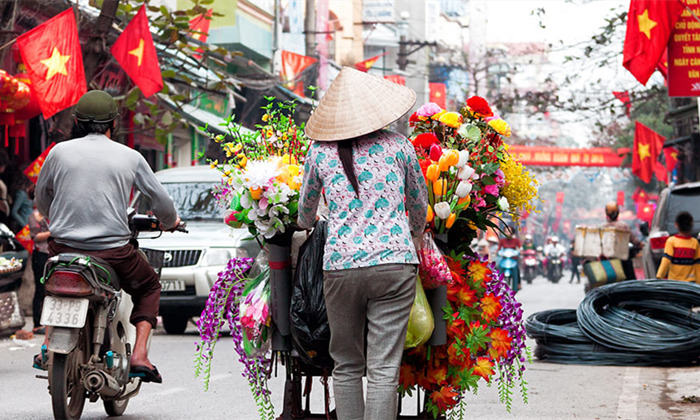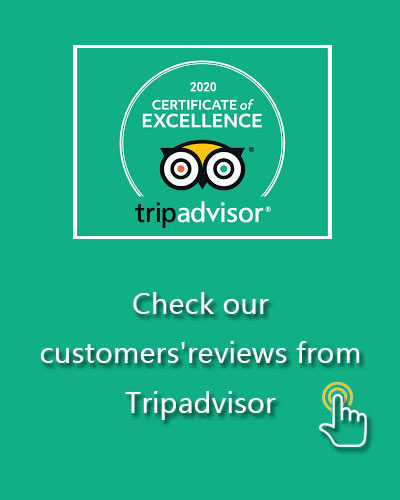Vietnam Travel Tips
With many fascinating tourist spots and unique exotic cultures, Vietnam attracts more and more travelers from all over the world, and has been a must visit tourist destination of Asia. No matter you desire for natural sceneries, exotic cultures, or just simply relaxing on tropical beach, Vietnam is a right place to satisfy you. We specially listed the following Vietnam travel tips and advised to make your trip smoother and successful!
Best Time to Visit Vietnam
Vietnam is blessed by three different micro climates that making it a great destination year-round. November to April is the best time to travel being the drier season; then the rain come to the north and south of the country during the rest of the year; the varied central region of Vietnam stays hot and dry. March and April is the best time to visit the UNESCO World Heritage Site of Halong Bay. You want to visit the stunning caves of Phong Nha between February and August. The vibrant Mekong Delta is best between October and May. Experienced travelers usually visit Vietnam in spring (February to April) and autumn (August to October) while the temperatures are moderate and rainfall is lighter.

Food in Vietnam
Vietnamese food is famous throughout the Asia, and its dishes attract many culinary enthusiasts. Foods in Vietnam are recognized for being so fresh, flavorful, and healthy. Rice or noodles are usually the center of most dishes, but there are many regional variations across the country. You will commonly find lemongrass, mint, and ginger in Vietnamese foods. There are many locally distilled drinks in Vietnam; the two most popular beers are Saigon Export and Saigon Lager. Tiger, Carlsberg, Heineken, and San Miguel are also brewed here. Vietnam also has a variety of rice wines and fruit wines made from orange, lemon, and apricot. Soft drinks are produced from local tropical fruits and offer abundant flavor. Tea is the most popular local drink and is frequently offered to visitors as a courtesy. Tap water is not safe to drink in the country; bottled water is cheap and available in most places, but make sure the cap is completely sealed. Avoid drinks with ice or those that might have been diluted with tap water.

Internet and Cellphone
Four major providers service the Internet needs of Vietnam, and Viettel and Vinaphone are the largest. Viettel is the country's largest and serves the most customers. Different types of SIM cards for any of the networks are offered at many locations. You can get a data-only SIM card for a low price if you don’t care about making calls. Vietnamese law requires those signing up for a prepaid mobile SIM card to register their identity. If you want to avoid this, you can find SIM cards that have already been activated. It is important to note that Internet access is very limited in most parts of the country, and infrastructure is still being built. However, most developed and tourist cities have public places and cafes with free WIFI, while nearly every hotel will offer this.

How to Behave in Vietnam
Vietnamese people are very warm and hospitable to guests of their beautiful country. There are some local customs you should be aware of, however. If you enter into a local's home, remember to take off your shoes. They might give you some plastic sandals, or you can just walk barefoot. Next, dress is important in the country. Locals are usually very conservative in their clothing (except the shirtless Vietnamese workers you will come across). When going to a temple or pagoda, it is considered extremely rude to wear shorts, dresses/skirts, singlets, or shirts that expose a more than normal amount of neck or shoulders. Buddhism is strong in Vietnam, and you should never turn your back to a temple because it disrespects the religion. If you want to take pictures of the temple, you should ask to make sure it is acceptable. You might be urged to give away your candy, empty water bottles, or pens in local villages. Please avoid doing this, as dental care is scarce in the country, bottles might be used to litter, and pens are better off donated to a local teacher.
With many fascinating tourist spots and unique exotic cultures, Vietnam attracts more and more travelers from all over the world, and has been a must visit tourist destination of Asia. No matter you desire for natural sceneries, exotic cultures, or just simply relaxing on tropical beach, Vietnam is a right place to satisfy you. We specially listed the following Vietnam travel tips and advised to make your trip smoother and successful!
Best Time to Visit Vietnam
Vietnam is blessed by three different micro climates that making it a great destination year-round. November to April is the best time to travel being the drier season; then the rain come to the north and south of the country during the rest of the year; the varied central region of Vietnam stays hot and dry. March and April is the best time to visit the UNESCO World Heritage Site of Halong Bay. You want to visit the stunning caves of Phong Nha between February and August. The vibrant Mekong Delta is best between October and May. Experienced travelers usually visit Vietnam in spring (February to April) and autumn (August to October) while the temperatures are moderate and rainfall is lighter.

Food in Vietnam
Vietnamese food is famous throughout the Asia, and its dishes attract many culinary enthusiasts. Foods in Vietnam are recognized for being so fresh, flavorful, and healthy. Rice or noodles are usually the center of most dishes, but there are many regional variations across the country. You will commonly find lemongrass, mint, and ginger in Vietnamese foods. There are many locally distilled drinks in Vietnam; the two most popular beers are Saigon Export and Saigon Lager. Tiger, Carlsberg, Heineken, and San Miguel are also brewed here. Vietnam also has a variety of rice wines and fruit wines made from orange, lemon, and apricot. Soft drinks are produced from local tropical fruits and offer abundant flavor. Tea is the most popular local drink and is frequently offered to visitors as a courtesy. Tap water is not safe to drink in the country; bottled water is cheap and available in most places, but make sure the cap is completely sealed. Avoid drinks with ice or those that might have been diluted with tap water.

Internet and Cellphone
Four major providers service the Internet needs of Vietnam, and Viettel and Vinaphone are the largest. Viettel is the country's largest and serves the most customers. Different types of SIM cards for any of the networks are offered at many locations. You can get a data-only SIM card for a low price if you don’t care about making calls. Vietnamese law requires those signing up for a prepaid mobile SIM card to register their identity. If you want to avoid this, you can find SIM cards that have already been activated. It is important to note that Internet access is very limited in most parts of the country, and infrastructure is still being built. However, most developed and tourist cities have public places and cafes with free WIFI, while nearly every hotel will offer this.

How to Behave in Vietnam
Vietnamese people are very warm and hospitable to guests of their beautiful country. There are some local customs you should be aware of, however. If you enter into a local's home, remember to take off your shoes. They might give you some plastic sandals, or you can just walk barefoot. Next, dress is important in the country. Locals are usually very conservative in their clothing (except the shirtless Vietnamese workers you will come across). When going to a temple or pagoda, it is considered extremely rude to wear shorts, dresses/skirts, singlets, or shirts that expose a more than normal amount of neck or shoulders. Buddhism is strong in Vietnam, and you should never turn your back to a temple because it disrespects the religion. If you want to take pictures of the temple, you should ask to make sure it is acceptable. You might be urged to give away your candy, empty water bottles, or pens in local villages. Please avoid doing this, as dental care is scarce in the country, bottles might be used to litter, and pens are better off donated to a local teacher.
Related Articles You May Like
Most Frequently Asked Questions
Japan Office
- Tel: +81 50-3701-6391
- Email: info@japanholiday.com
- Working Hours: 8am-7pm, (Japan)
USA Office
- Tel: +1-6265617117
- Email: info@japanholiday.com
- Working Hours: 8am-7pm, Pacific Time

